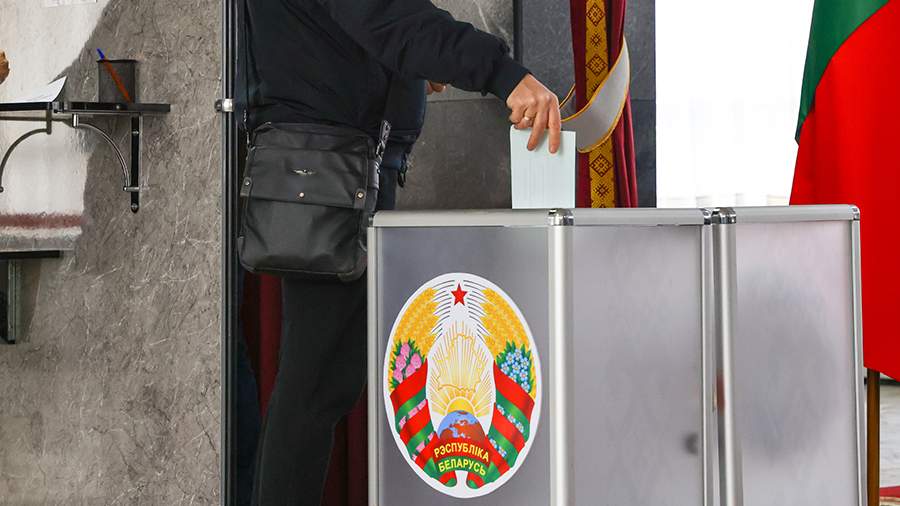Belarusian Foreign Ministry calls the EP draft resolution on the elections in the country biased
- Новости
- World
- Belarusian Foreign Ministry calls the EP draft resolution on the elections in the country biased

The draft resolution of the European Parliament (EP) on the elections in Belarus is completely biased and is a gross interference in the electoral processes of a sovereign state. This was stated in a statement of the Belarusian Foreign Ministry on January 22.
As noted by spokesman for the ministry Anatoli Glaz, if the pre-prepared statement of the European Union (EU) on the elections, which is planned to be discussed by MEPs at the debate, is adopted, it will become evidence of planned interference in the internal affairs of Belarus.
"Already at this stage it is obvious that the draft <...> has nothing to do with the real state of affairs and is designed to put pressure on the free will of citizens. The initiatives of individual Euro-provocateurs would not deserve other comments," the spokesman said.
Foreign Ministry once again stated that all actions against Belarus are prepared in the West in advance and regardless of the real state of affairs in the country. The department already has at its disposal a statement of the European External Action Service (EEAS), which it plans to make on the results of the elections, based on the yet-to-be adopted EP resolution.
"The elections in Belarus have just begun, and everything there has already been condemned and not recognized. The statement, for example, states that - quote: "Restrictions on the access of independent media in Belarus have seriously undermined the legitimacy of the electoral process. In this regard, the necessary conditions for democratic elections were not met". Already from the first paragraph all the statements are false," said Glaz.
The statement that Belarus did not invite observers from the Office for Democratic Institutions and Human Rights (ODIHR) of the Organization for Security and Cooperation in Europe (OSCE) to the elections is also false, he noted. Another paragraph in the yet-to-be-adopted document contains a set of stamps about the EU's alleged support for "democratic rights and freedoms."
"If such a statement of the EEAS is adopted, it will become another proof of the planned interference of the EU in the internal affairs of other countries and an attempt to cover up and legitimize its criminal actions against the Republic of Belarus. This is unacceptable for sovereign Belarus. Any such attempts will receive an appropriate response," said a spokesman for the Foreign Ministry of Belarus.
Earlier, January 21, the EU website published a statement that the EP deputies plan to urge the EU not to recognize the results of the presidential elections in Belarus. According to the document, the EU countries and the international community should reject the campaign and elections in Belarus as fictitious, as they allegedly "do not meet the minimum international standards of democratic elections."
Earlier, January 19, Russian President Vladimir Putin wished success in the presidential election to his Belarusian counterpart Alexander Lukashenko. Before that, January 7, Lukashenko said that he doesn't hold on to power and considers it his advantage. He also emphasized that he would do everything to quietly hand it over to the new generation.
Presidential elections in Belarus are scheduled for January 26, 2025. Chairman of the House of Representatives Igor Sergeenko called the upcoming elections an important and significant socio-political event.
The candidates for the presidential election are the current leader of Belarus Alexander Lukashenko, leader of the Liberal Democratic Party of Belarus Oleg Gaidukevich, MP Anna Kanopatskaya, leader of the Belarusian Communists Sergei Syrankov and leader of the Party of Labor and Justice Alexander Khizhnyak.
Переведено сервисом «Яндекс Переводчик»

